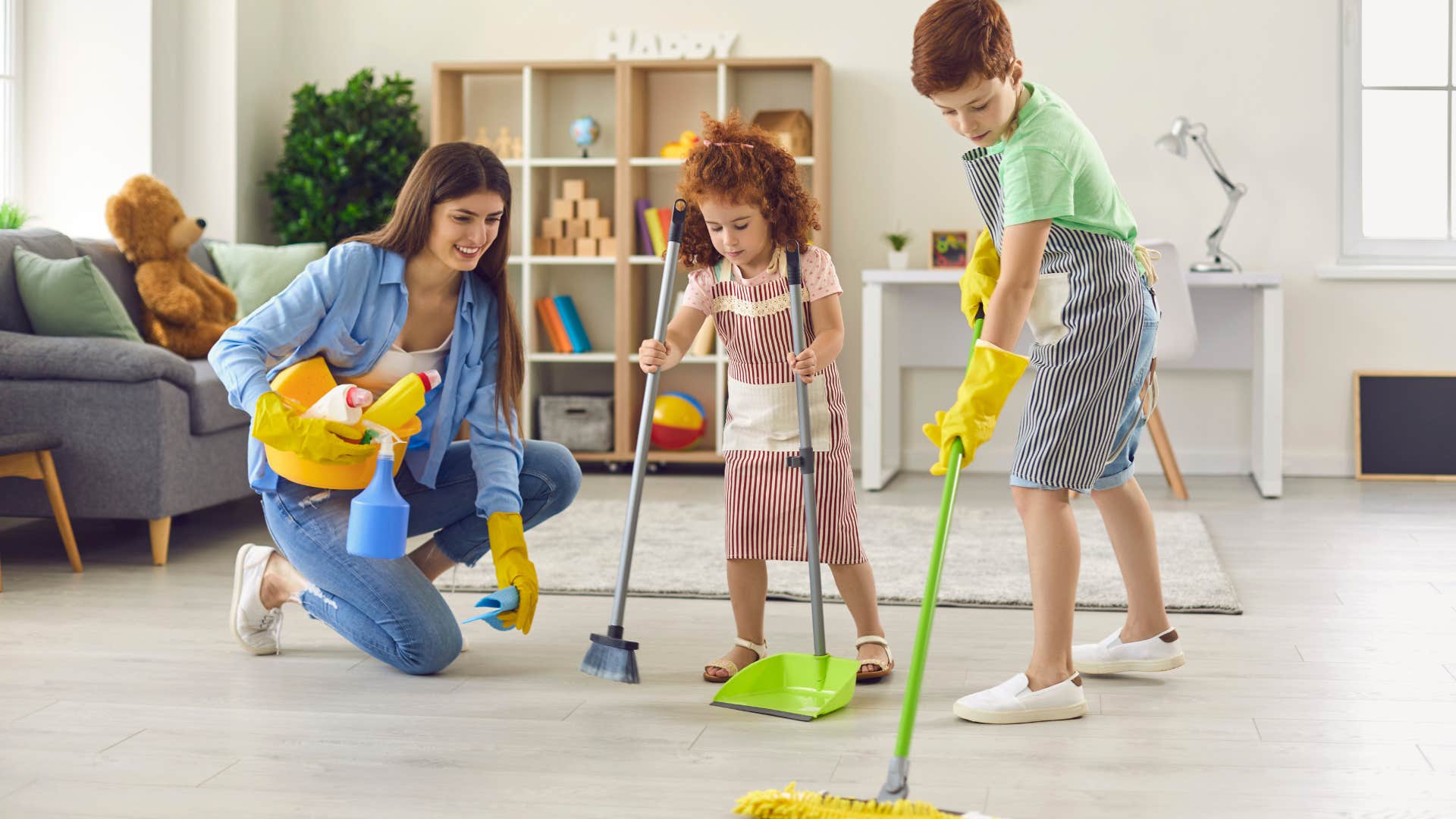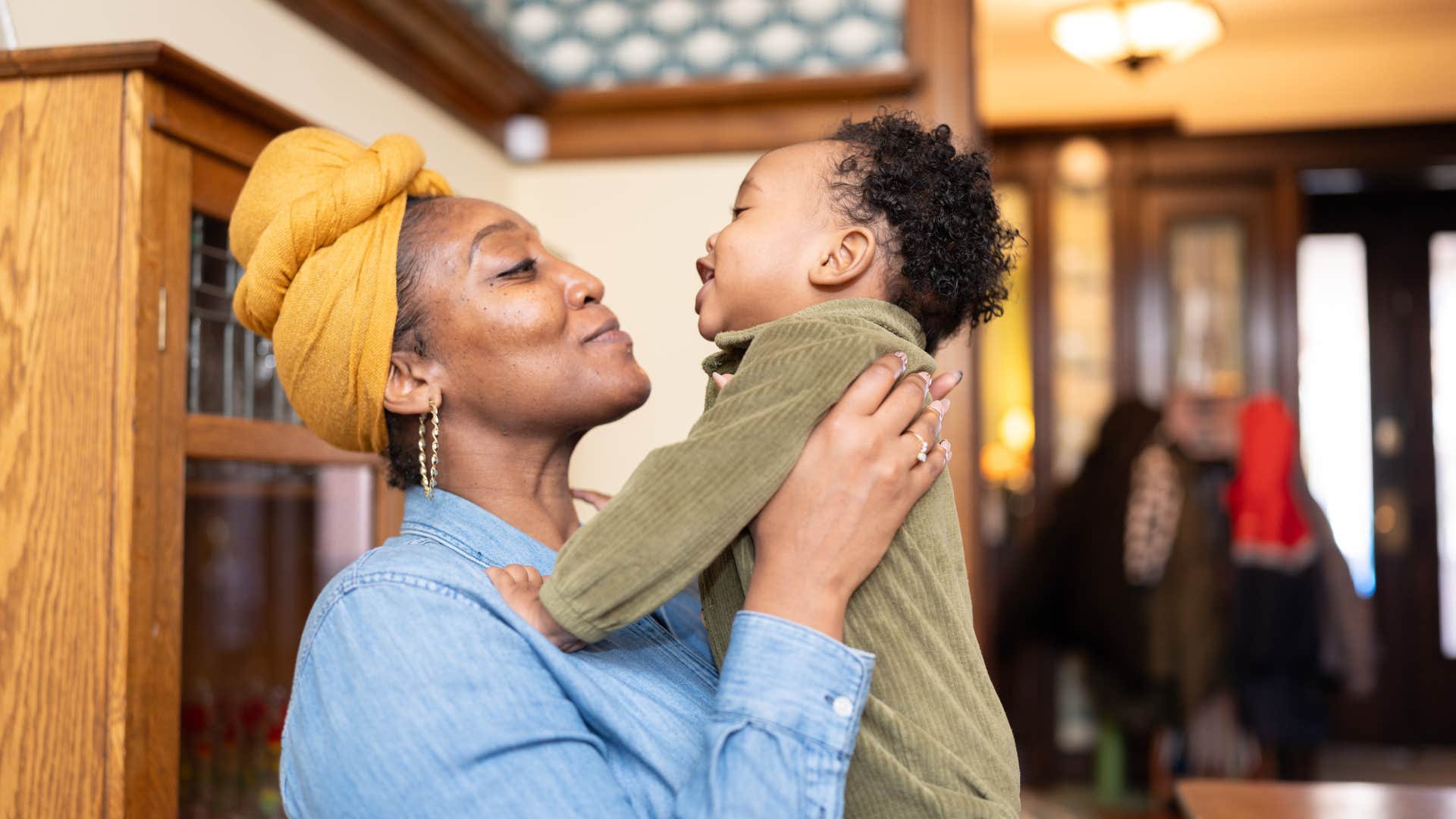Parents Whose Kids Stay Close To Their Siblings For Life Usually Do These 11 Things
Parents who raise closely bonded siblings do many things right that others can learn from.
 fizkes / Shutterstock
fizkes / Shutterstock Some families grow apart as kids get older, while others remain remarkably close. What makes the difference is the atmosphere created at home during childhood. Parents who raise siblings who stay bonded into adulthood often focus less on avoiding rivalry and more on fostering genuine connection. They create an environment where siblings learn not only how to get along, but how to truly appreciate one another as individuals.
It’s not about perfection or never making mistakes. Instead, it’s about consistent choices that prioritize respect, unity, and shared identity. Research indicates that positive parental practices, such as emotional attunement and fairness, are strongly associated with long-term sibling closeness. Here are things parents often do, sometimes without even realizing it, that help their kids grow into lifelong allies.
Parents whose kids stay close to their siblings for life usually do these 11 things
1. Celebrate each child’s individuality
 Monkey Business Images via Canva
Monkey Business Images via Canva
Instead of pushing siblings into narrow roles, these parents highlight what makes each child unique. They go beyond just noticing differences to celebrate them.
Children who feel individually valued are less likely to compete destructively with siblings. By embracing individuality, parents create space for siblings to admire, rather than resent, each other’s strengths.
2. Create shared family traditions
 Robert Kneschke via Canva
Robert Kneschke via Canva
Regular rituals, whether Sunday dinners, yearly trips, or holiday traditions, build a sense of belonging. These shared experiences become anchor points siblings carry into adulthood.
Research links family rituals to stronger intergenerational bonds. Even small traditions create a foundation of closeness that feels worth protecting.
3. Teach healthy conflict skills
 skynesher from Getty Images Signature via Canva
skynesher from Getty Images Signature via Canva
Parents who raise close siblings don’t pretend conflicts won’t happen. They teach kids how to handle them constructively. They emphasize repair after disagreements, so fights don’t linger.
Studies highlight that guided conflict resolution leads to stronger sibling empathy. The focus isn’t on preventing fights but on ensuring they don’t damage the bond.
4. Foster teamwork, not rivalry
 studioroman via Canva
studioroman via Canva
These parents look for ways to put siblings on the same side, whether through shared chores, projects, or goals. By teaching collaboration, they reduce the urge to compete.
This cooperation becomes a model siblings carry into adulthood, where working together feels natural. Instead of rivals, they learn to see each other as teammates.
5. Show fairness consistently
 Vlada Karpovich from Pexels via Canva
Vlada Karpovich from Pexels via Canva
Parents who treat siblings equitably, not necessarily identically, build trust that lasts. Research shows that perceived fairness from parents predicts sibling closeness later in life.
Fairness signals that every child’s needs are valid, reducing bitterness and comparison. This consistent fairness makes it easier for siblings to trust one another as well.
6. Encourage empathy in daily life
 Foden Nguyen from Pexels via Canva
Foden Nguyen from Pexels via Canva
Parents who model and encourage empathy teach siblings to look out for each other’s feelings. Whether it’s checking in after a bad day or celebrating each other’s wins, empathy builds closeness.
Studies in developmental psychology confirm that children who practice empathy in the home grow into adults with stronger, healthier relationships. With empathy as the norm, siblings form deep bonds.
7. Involve siblings in family decisions
 Comstock from Photo Images via Canva
Comstock from Photo Images via Canva
From choosing dinner menus to planning vacations, parents who invite input foster a sense of respect. Kids who feel their voices matter are less likely to resent one another and more likely to value collaboration.
This creates a sense of partnership in the family, where siblings feel like they’re part of a team rather than competing factions.
8. Model respect in their own relationships
 Aflo Images via Canva
Aflo Images via Canva
When parents treat each other and their children with respect, siblings absorb that example. They learn to extend courtesy even when frustrated.
Research indicates that respectful family environments are associated with healthier sibling bonds in the long term. Respect demonstrated by parents becomes the blueprint siblings carry with them.
9. Encourage shared responsibility
 YakobchukOlena from Getty Images via Canva
YakobchukOlena from Getty Images via Canva
Parents who involve siblings in joint responsibilities, such as caring for a pet, managing a garden, or hosting family events, help them build trust and accountability together. This sense of partnership creates shared pride.
Over time, these early lessons translate into siblings who can rely on each other as adults. Responsibility becomes a connector, not a divider.
10. Spend one-on-one time with each child
 pocstock via Canva
pocstock via Canva
While family unity is key, these parents also ensure each child feels individually seen. Researchers note that individualized parental attention reduces sibling rivalry.
When kids know their worth isn’t dependent on competing for attention, they’re freer to bond with each other. Close adult siblings often trace this back to feeling equally valued at home.
11. Apologize and repair openly
 pixelshot via Canva
pixelshot via Canva
Parents who can admit mistakes show children that relationships don’t have to crumble when things go wrong. Apologies model humility and repair, teaching kids that bonds can withstand conflict.
This pattern of repair builds trust, making siblings more likely to forgive and reconnect throughout their lives. Instead of avoiding mistakes, the family learns how to heal together.
Sloane Bradshaw is a writer and essayist who frequently contributes to YourTango.

